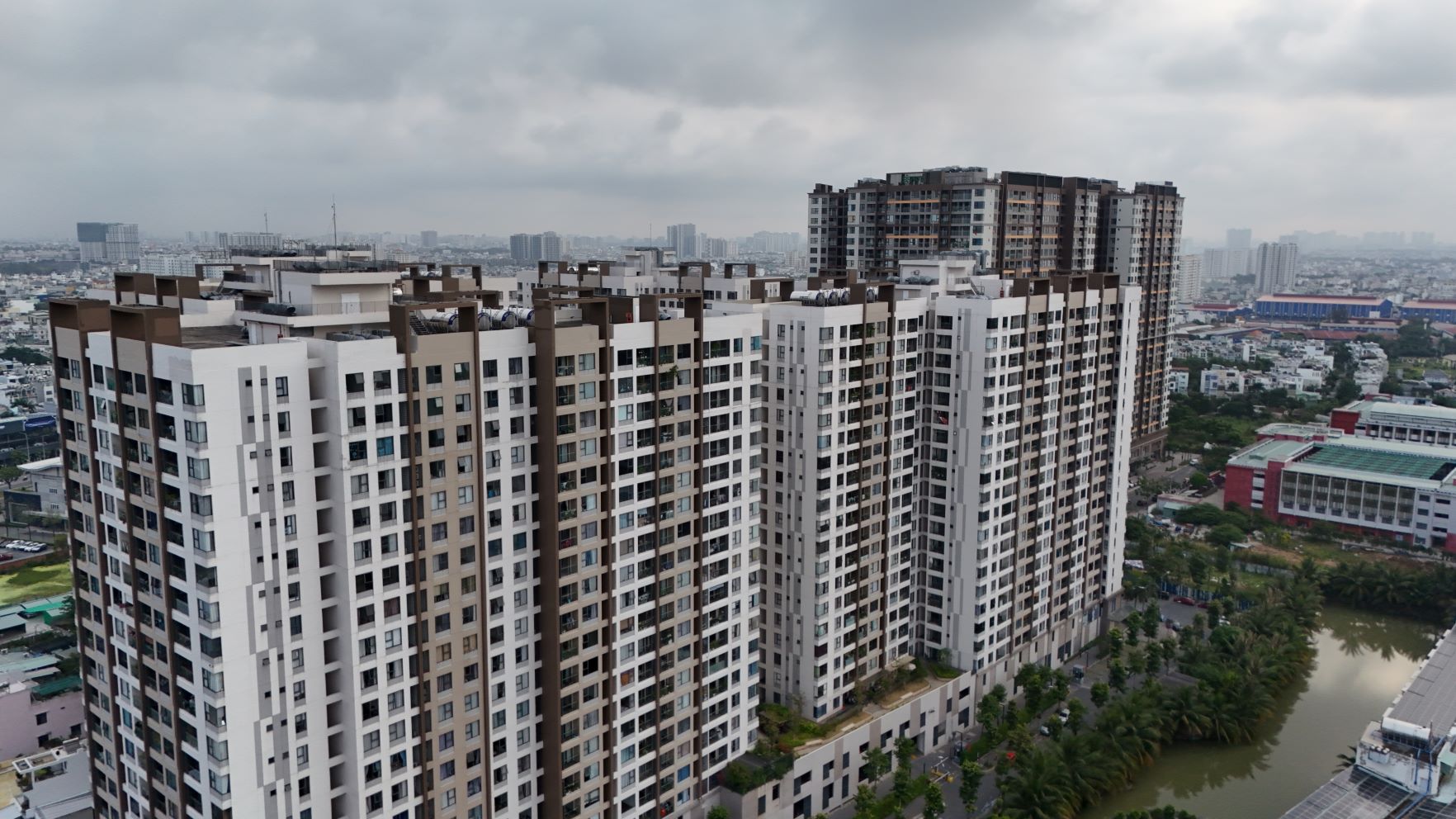HCMC – Vietnam has recorded more than 430,000 property transactions in the first nine months of this year, but housing prices in Hanoi City and HCMC remain beyond the reach of most households, reported the Government news website (baochinhphu.vn).
Deputy Minister of Construction Nguyen Van Sinh said on September 22 that the country is developing over 1,810 residential and urban projects, including 1,071 commercial housing projects with nearly 400,000 units, 478 land subdivision projects, and 312 social housing projects with about 245,500 units.
Apartment prices in Hanoi City and HCMC are at VND70-80 million per square meter, up 5.6% since the beginning of the year. Some high-end projects exceed VND150 million per square meter. Land prices range from VND60-100 million per square meter in Hanoi City and VND60-120 million in HCMC, with some suburban plots reaching VND200 million.
Social housing is priced at VND15-25 million per square meter, or VND750 million to VND1.25 billion for a 50-square-meter unit. Experts said prices remain far above the affordability of most households, while the supply of social housing is still limited.
The Construction Ministry pointed to delays in legal implementation, lengthy approval procedures, resettlement issues, and limited credit access for developers. The corporate bond market also poses risks.
The ministry proposed measures including legal reforms, faster development of social housing, tighter market oversight to curb speculation, and diversified funding sources with stronger transparency. It is also studying a pilot mechanism for real estate and land-use rights trading centers, and working with the Finance Ministry on a legal framework for a national housing development fund.
Prime Minister Pham Minh Chinh instructed the Ministry of Agriculture and Environment to complete land regulations and asked the State Bank of Vietnam to implement a VND120 trillion credit package for social housing and expand preferential loans for first-time homebuyers. Local governments were told to accelerate project approvals, especially for social housing, and cut administrative procedures to reduce costs for developers.









